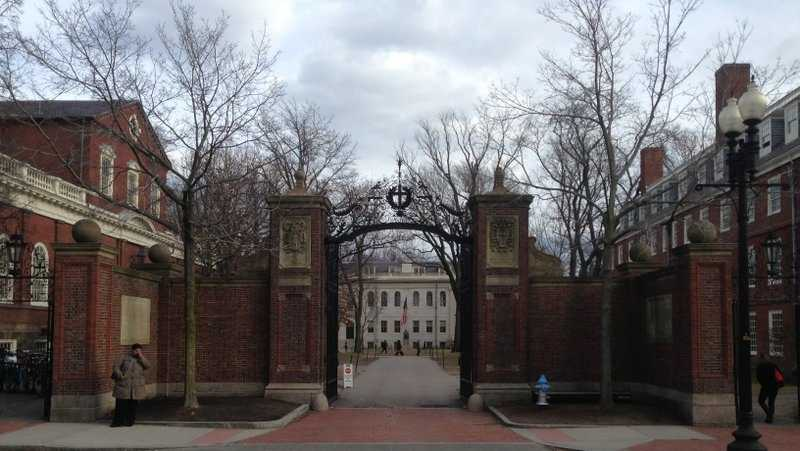The recent Harvard lawsuit funding freeze has sparked considerable controversy, igniting debates across academia and government. This significant legal action, taken by Harvard University against the Trump administration, alleges that the administration’s decision to freeze over $2.2 billion in research funding violates the First Amendment and existing laws. Harvard’s filing in U.S. District Court in Boston emphasizes both the constitutional implications of government interference in university operations and the potentially devastating impact on critical research fields like cancer and infectious diseases. As the Harvard administration navigates this tumultuous situation, the implications of the freeze extend far beyond just financial matters, touching on the very freedoms of speech and academic inquiry. The government funding controversy surrounding this case is poised to influence the future landscape of research funding and First Amendment rights in the U.S.
The recent legal battle involving Harvard University, notably described as the Harvard administration lawsuit, has unveiled a complex web of issues surrounding funding for academic research. The Trump administration’s controversial freeze on financial support for universities has raised critical questions regarding constitutional rights, particularly in relation to First Amendment research funding. This dispute highlights the precarious balance between government oversight and institutional autonomy, shedding light on the broader implications of such actions on the academic community. With accusations of infringing upon essential freedoms and potentially harming vital scientific advancements, this funding freeze represents a pivotal moment in the ongoing discourse about university independence and government involvement. As the scenario unfolds, stakeholders from various sectors watch closely, recognizing the importance of ensuring that research dollars flow freely to support innovation and inquiry.
Harvard’s Lawsuit Against the Trump Administration
Harvard University has filed a significant lawsuit against the Trump administration, asserting that the recent freeze on more than $2.2 billion in research funding is unconstitutional. The complaint is officially lodged in the U.S. District Court in Boston, where Harvard’s administration argues that such an imposition undermines not only federal laws but also the principles enshrined in the First Amendment. They contend that the government’s categorical approach to terminate funding without following due procedures is a direct assault on academic freedom and a blatant disregard of established legal norms.
The details disclosed in the lawsuit indicate that Harvard’s leadership, spearheaded by President Alan Garber, views this funding freeze as a retaliatory measure following the university’s refusal to accept conditions imposed by the administration. These conditions aimed to influence hiring, governance, and the ideological composition of the university community. Garber’s statement reflects a broader concern about academic independence being jeopardized, as the lawsuit seeks to not only lift the funding freeze but also to reaffirm the importance of autonomy in educational institutions.
Frequently Asked Questions
What is the Harvard lawsuit funding freeze about?
The Harvard lawsuit funding freeze refers to the legal action taken by Harvard University against the Trump administration, which is accused of unlawfully freezing over $2.2 billion in research funding. Harvard claims this freeze violates the First Amendment and other federal laws, arguing for a restoration of the funding without adhering to established legal procedures.
How does the freeze of funding affect Harvard’s research capabilities?
The freeze of research funding significantly impacts Harvard’s ability to conduct crucial medical and scientific research. The lawsuit highlights that without the restoration of these funds, vital projects related to cancer treatments, infectious diseases, and other critical areas face considerable delays and may be severely curtailed.
Why did Harvard file a lawsuit against the Trump administration regarding the funding freeze?
Harvard filed a lawsuit against the Trump administration in response to an abrupt funding freeze that the university describes as unconstitutional. The lawsuit asserts that the freeze restricts free speech and academic freedom, as it imposes unjust demands on the university’s governance and operations, hindering its academic independence.
What claims are made in the Harvard administration lawsuit?
In the Harvard administration lawsuit, the university claims that the freeze on research dollars conflicts with First Amendment rights by enforcing ideological control and lacking necessary legal procedures for funding termination. Harvard argues that the government’s actions are arbitrary and lack the required procedural fairness mandated by law.
How much funding is at stake in the Harvard lawsuit against the Trump administration?
The Harvard lawsuit is centered around a freeze of more than $2.2 billion in research funding, with additional threats of freezing another $1 billion. This significant amount underscores the potential financial implications for the university’s research and operations.
What procedures must the government follow before freezing Harvard’s research funding?
Before freezing Harvard’s research funding, the government must comply with established legal procedures, which include voluntary negotiations, official hearings, and a set timeframe for funding review. The lawsuit contends that the Trump administration bypassed these required steps, thus rendering the funding freeze unlawful.
What are the implications of the government’s funding freeze on Harvard’s research programs?
The government’s funding freeze jeopardizes key research programs at Harvard, potentially halting projects that deal with public health, scientific advancements, and technological innovations. The lawsuit argues that this overreach could have severe and lasting consequences for both the university and the broader research community.
What does President Alan Garber say about the lawsuit and the funding freeze?
President Alan Garber describes the lawsuit as necessary to restore the lawfulness of Harvard’s operations and funding. He emphasizes that the Trump administration’s freeze is not only a legal issue but also an attack on the university’s autonomy and First Amendment rights, and he highlights the detrimental effects such a freeze could have on ongoing and future research.
| Key Points | Details |
|---|---|
| Lawsuit Filed | Harvard filed a lawsuit against the Trump administration regarding the freeze on over $2.2 billion in research funding. |
| Unlawful Freeze | The lawsuit argues that the funding freeze is unconstitutional and violates the First Amendment. |
| Response to Government Demands | The lawsuit was prompted by demands from the government that Harvard change its governance and policies. |
| Consequences of the Freeze | Harvard warns that the funding freeze threatens critical research, affecting work on cancer, infectious diseases, and other significant areas. |
| Legal Grounds | The complaint highlights procedural violations and argues that the government has overstepped its authority. |
| Call for Action | Harvard’s leadership urges the court to restore funding and oppose government overreach. |
Summary
The Harvard lawsuit funding freeze highlights a critical battle over academic freedom and research integrity. This legal action reflects Harvard’s strong opposition to what it perceives as an unconstitutional funding freeze by the Trump administration, which threatens to restrict vital research efforts. As Harvard seeks restoration of its funding, the implications of this case could resonate beyond the university, impacting the broader landscape of research, innovation, and academic independence.



